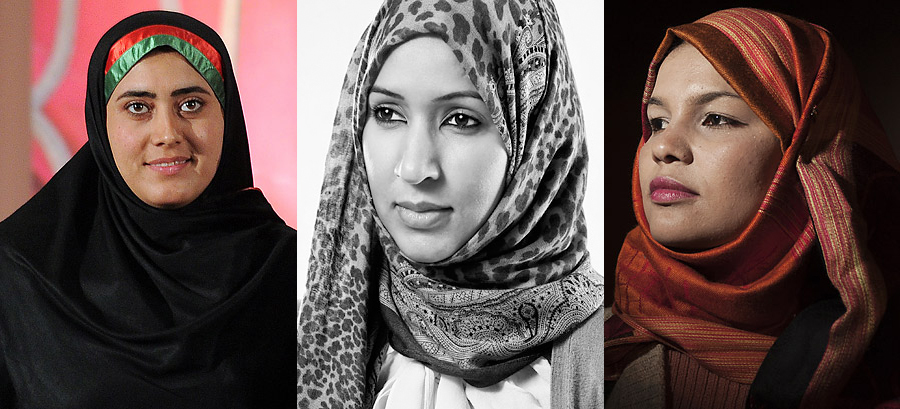I spent the last weekend in Istanbul, having decided with my husband to escape the hectic daily news cycles of cosmopolitan Dubai, bustling with all kinds of events. It was meant to be a time for relaxation, to enjoy the beautiful natural scenery and the delicious Turkish cuisine. But my obsession with how international media are representing transitions in the Arab region seems to be insatiable. Time Magazine’s feature on the 100 most influential people in the world might be an annual journalistic ritual, nothing out of the ordinary, but the inclusion of several women from Muslim backgrounds in the list was compelling enough for me to be lured in by the story.
Egyptian Samira Ibrahim is no ordinary woman in the current transitions in that country. Ibrahim got recognition for her courage in speaking up, and suing the military for subjecting her and other women to the infamous “virginity tests.” The piece on Ibrahim was written by Charlize Theron, the Oscar-winning actress and a UN Messenger for Peace. I found one sentence particularly moving:
“Samira represents the model of how to stand up to fear, and the impact she has made reaches far beyond Egypt. It takes just one woman to speak out, and thousands of others around the world will listen and feel inspired to act.”
It is true that Ibrahim could not win a fair verdict in a military court based in a country with long-entrenched conservative traditions. But change, as we know, does not come overnight. Egyptians began a revolution that toppled a dictatorship, but this revolution has not yet lead to dramatic changes in attitudes, including on issues relating to women and feminism. It will probably take years for these changes to become real, and that also applies to Ibrahim’s case.
Another woman featured in Time’s list of the 100 Most Influential People is Saudi Manal al- Sharif, who posted a Youtube video of herself driving her car in a country where women are not allowed to sit behind the steering wheel. Her bold move inspired other women in the Kingdom to do the same and drive their cars. Al-Sharif was detained for about nine days, but this did not stop other women from challenging negative attitudes towards women in a male-dominated society. Aryn Baker, Time’s Middle East Bureau Chief, wrote about Al Sharif, saying:
“Lifting the ban has gained much support, but it has also sparked a backlash. Other female drivers have been imprisoned, and some even lashed. But because of al-Sharif, Saudi women are beginning to get in the driver’s seat.”
A third Muslim woman to make it to this year’s Time’s list of the 100 Most Influential People is Maryam Durani, of Afghanistan. Maryam got recognition for her role in running a radio station that focuses on women’s issues in Kandahar. She is also a member of the Kandahar Provincial Council. Matt McAllester, a senior editor at Time, wrote about Durani, saying:
“Durani stands up for the region’s women with remarkable bravery. She is, inevitably, a target for the Taliban, who believe in a highly restricted role for women in Afghan society, and has survived several assassination attempts.”
Though these three women belong to three different national and socio-political milieus and experiences, they share one common denominator: they had the guts to speak up and stand up in defiance of a male-dominated social, cultural and political authority. This is intrinsically what the current “Arab Spring” is all about. It is not only about toppling dictatorships and eradicating corruption, but also about establishing an egalitarian and equitable system where men and women are treated as equal.
Other women honoured who come from Muslim contexts include Sharmeen Obaid-Chinoy, a filmmaker we’ve discussed on MMW before, and Fatou Bensouda, the new chief prosecutor of the International Criminal Court. Of course, the inclusion of these women, and others, in Time’s 100 Most Influential People is, in significant ways, an outcome of the transitions currently taking place in many Muslim countries. The “Arab Spring,” among other things, has demonstrated the power of women to actively engage in socio-political change and contribute to the making of a new social order. The list could have included other women like Yemen’s Tawakkul Karman, who was a Nobel Prize laureate, or Fadwa Sulieman whose active engagement in the struggle against the Syrian regime has been widely hailed. But all in all, I think this year’s Time’s recognition of Muslim women’s contribution to the global feminist struggle for justice and equality could not be more timely and appreciated.


